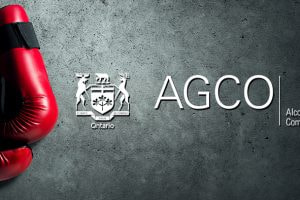Sports Betting Sites in Ireland and Gaming Modernisation Gathers Pace
The Irish Government is close to finishing the groundwork for a radical overhaul of the regulated gambling market in the country which is likely to have big ramifications for sports betting fans. The country’s gambling laws are historical, and making these regulations fit for the modern age has been high on the Government’s agenda.

Sports Betting Reform in Ireland Edges Closer
To modernise the legislation surrounding gambling in Ireland, the Government established an Inter-Departmental Working Group on the Future Licensing and Regulation of Gambling which was chaired by the Minister of State at the Department of Justice and Equality.
The Working Group also consisted of all departments responsible for or involved with gambling activities.
They met on six occasions between February 2018 and January 2019. However, they have been heavily impacted by Covid and significant political upheaval in the country.
Interim legislation was introduced in December 2021, making amendments to The Gaming and Lotteries Act 2019 but turning these temporary measures into permanent legislation has been slow.
You could say that Ireland is late to the party regarding gambling, especially online gambling, which wasn’t even lawful in the Emerald Isles until 2015. However, there will likely be an explosion of sports betting sites and casino operators in Ireland once the new regulations come into play.
Irish Gambling Industry Self Regulates Well
In many ways, the best betting sites in Ireland have little to fear with proposed new rules, as the trade body representing Irish bookmakers’ interests has introduced a comprehensive code of practice that aims to reduce the risk of gambling-related harm.
The Irish Bookmakers Association, whose members include BoyleSports, Flutter, Entain and other independent operators, agree to follow the guidelines which the IBA have introduced.
These guidelines include a whistle-to-whistle ban on advertising during live sports of gambling products. Similar to the one the UK introduced during the first coronavirus lockdown. Members have agreed not to advertise during sporting events before 9 pm. Other bookmakers who are not members of the IBA, including bet365, Betway and the Kindred Group, have also agreed to follow the guidelines.
The only bookmaker not to sign up for the IBA initiative is William Hill, who have decided to wait until Ireland introduces its new legislation before making a decision.
Another initiative the IBA has introduced is to stop betting companies, both retail and online, from accepting credit cards for gambling services.
As these initiatives in the guidelines are very similar to measures brought in for Northern Ireland, which is part of the United Kingdom, many analysts believe there will be no sudden sharp shock for providers of gambling services. Therefore, it is likely to be business as usual for the best Irish bookies.
A New Regulator to Oversee the Regulated Market
One of the biggest changes that the General Scheme of the General Scheme of the Gambling Regulation Bill promises is the creation of a gambling regulator which will be focussed on public safety and well-being regarding gambling in Ireland.
The regulator will have control of land-based gambling as well as online. The new regulatory body will enforce standards and can issue and revoke licences to operate in Ireland.
The General Scheme of the Gambling Regulation Bill also empowers the regulator to force advertisers, social media platforms and service providers to comply with their codes. Therefore, while many operators introduce safety measures voluntarily, the new regulator can ensure all operators follow its rules, providing consistency of protection and adherence.
Rather uniquely, The Irish Bookmakers Association supports the General Scheme of the Gambling Regulation Bill and its changes.
Sharon Byrne, Chairperson of the IBA said in a statement on their website: “The bill is very comprehensive and gives the new authority a lot of power and flexibility to regulate an ever-evolving industry. Some of the measures included in the bill are already voluntarily in place by some operators and improve upon customer protections, but the regulator can ensure all operators are applying a comprehensive set of standards across their business and for their customers. The bill also provides for the Authority to have the ability to force advertisers, social media platforms and service providers to comply with their codes, which will be important to ensure consistency of protection and adherence to codes and standards across all operators.
It is also very helpful that the bill and regulations will apply to unlicensed operators. This is an area we have been highlighting for years. As new regulations are adopted by licensed operators, it should not provide an opportunity for unlicensed operators to benefit or grow. The bill gives sweeping powers to the regulator for search and investigation of such operators, along with the ability to impose sanctions or penalties.”
The new regulator can issue significant fines to companies or individuals that break the terms and conditions of their licences. An individual who is found to have committed a serious offence could be fined up to a maximum of €20m.
For operators, the financial punishments can be even higher as the regulator can impose a fine of €20m or 10% of the company’s turnover, whichever sum is higher.
If we use the example of bet365, their annual turnover in 2020 was £2.76bn, meaning they could potentially be fined £276m (€331.50).
Gambling – An Irish Pastime
Gambling is prevalent in Ireland, and the Irish are believed to be the fourth-biggest gamblers in the EU. As a result, it is estimated that the Irish collectively lose €1.36bn each year, equating to €300 for every adult in the country.
Like most countries, Irish gamblers are increasingly taking their business online and away from betting shops and track betting.
In 2021, nearly half of all legal betting was done online, up from 36% the year before, with stay-at-home orders contributing to the acceleration.
However, the shift to online in Ireland is much quicker than in the rest of Europe, where the average channelisation rate rose from 26% to 39%.
Figures from 2019 show revenues in traditional betting duty receipts totalled €51.9m, up from €28.9 million in 2018. At the same time, online income has almost doubled from €21.7m in 2018 to €40.6m just a year later.
The way Irish punters place their bets is also changing. 44% of bets online are made from smartphones or tablets, meaning 56% are made from laptops or desktop computers. However, the number using mobile devices is increasing, and it is estimated that this number will increase to 60% by 2025.
For sports betting sites in Ireland, the market is very profitable. Revenue figures show that Ireland contributes 2.6% of Europe’s online gambling revenue despite only accounting for 1.1% of Europe’s overall population.



